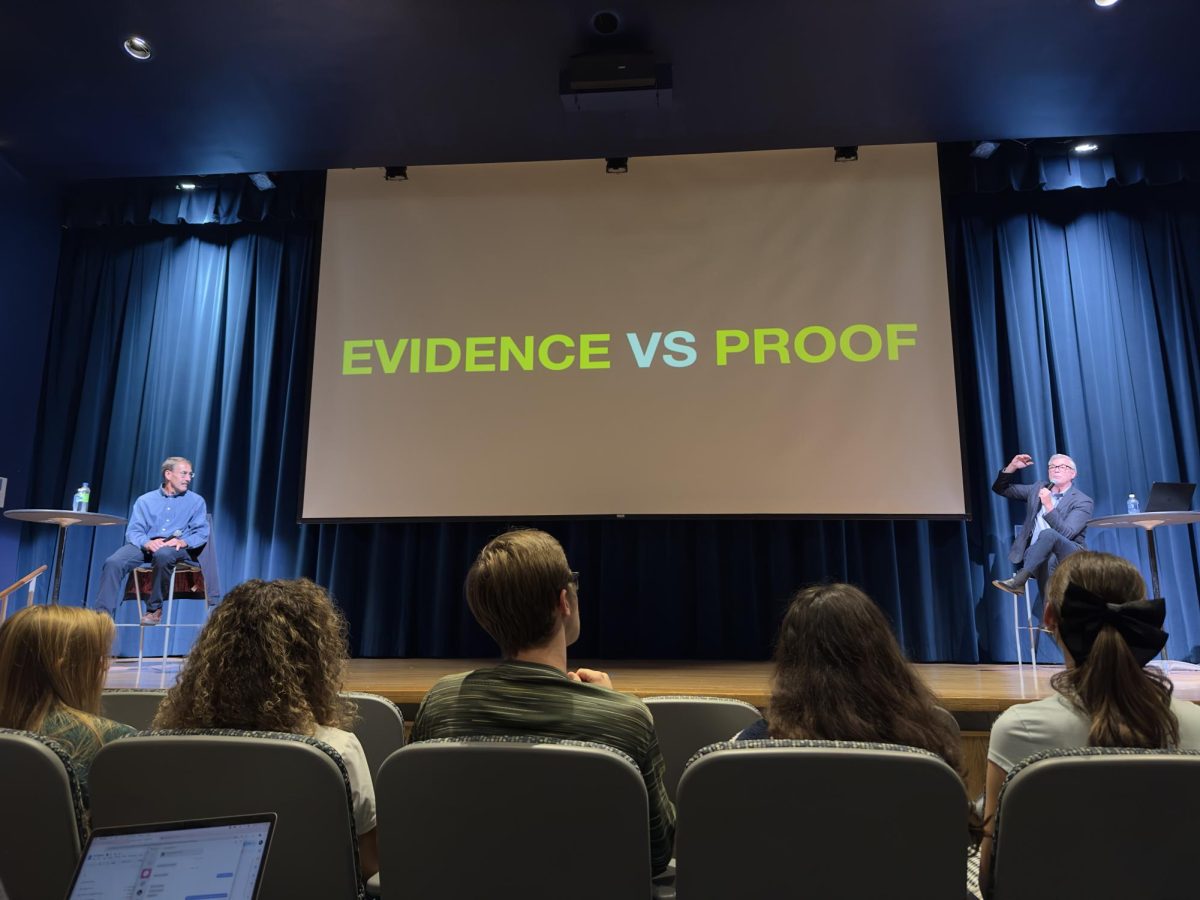There is no such thing as absolute proof, and there will always be truths that you cannot prove, pastor and author of “God’s Not Dead” told the student audience on Tuesday.
“You have two choices. Either everything you see created itself, or it was started by something besides itself,” said Rice Broocks, founder of “God’s Not Dead” Events.
Broocks shared a story of a past seminar where a student proposed a third option: maybe we’re not here at all.
“I said, ‘Well, in that case, you wouldn’t be here, so please be quiet,’” Broocks said. The crowd laughed, and he began his seminar.
Broocks travels around the world to college campuses to prove the existence of God using science, philosophy and history.
His stop at Kent State with co-presenter Eric Hedin, who has a doctorate in physics, explored four areas of evidence.
“Number one, how do you know God exists? What is the evidence? There was a beginning,” Broocks said.
He and Hedin explained that from Aristotle to Einstein, many scientists believed the universe was eternal, all that ever was, is and would be. Astronomer and atheist Fred Hoyle coined the term “Big Bang” for the idea that the universe was created, implying that something must exist beyond it.
“If space has an absolute beginning, then the cause would necessarily have to be spaceless,” Broocks said. “If time had a beginning, timeless. If matter had a beginning, the cause would necessarily be immaterial.”
To move forward, you have to assert the creation of the universe as a fact, Broocks said. Something created it. Something intelligent.
“Number two, life was no accident,” Broocks said. He introduced the concept of an intelligent creator through a video about fine-tuning, which explained the incredibly precise structure of the universe.
After detailing the complexity of the laws of science, Broocks transitioned to the more “cathartic” aspects of life.
“Number three, good and evil are no illusions,” Broocks said.
The center of the third argument tries to answer the question: How could there be a God when there’s so much evil in the world? Broocks’ answer is, if there is no God, there is no evil. All things are permissible.
For example, world hunger and water pollution are widely considered evil. The cost to provide food and clean water to the world is a fraction of the money spent globally on military defense, Broocks said.
“The existence of evil does not indicate the absence of God from the world, but the absence of Him from our lives,” Broocks said.
The rest of the seminar focused on Christianity.
Argument number four was the existence and nature of Jesus. Broocks gave a summary of his crucifixion, resurrection and the testimonies that followed as historical evidence.
Broocks ended the seminar with a prayer, and the students in the audience bowed their heads.
Senior nursing major Trinity Rudolph and senior business management major Nathan Tager said they appreciated the seminar’s science aspect.
Rudolph liked the physicist’s input combined with the pastor’s perspective. “I do wish the physicist spoke more,” she said.
Tager thought the seminar was interesting and dynamic. “The scientific parts were challenging and made you think a little bit,” Tager said.
Bianca Amoako is a reporter. Contact her at [email protected].


